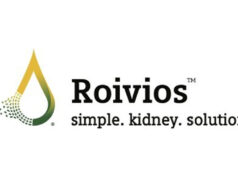 A study recently published in the New England Journal of Medicine (NEJM) has demonstrated that semaglutide (Novo Nordisk) significantly reduces the risk of major kidney disease events, cardiovascular outcomes, and all-cause mortality in patients with type 2 diabetes and chronic kidney disease (CKD). The landmark trial, presented at the 61st European Renal Association (ERA) congress (23–26 May, Stockholm, Sweden), will pave the way for new treatment strategies and offer hope to millions of patients globally, researchers have claimed.
A study recently published in the New England Journal of Medicine (NEJM) has demonstrated that semaglutide (Novo Nordisk) significantly reduces the risk of major kidney disease events, cardiovascular outcomes, and all-cause mortality in patients with type 2 diabetes and chronic kidney disease (CKD). The landmark trial, presented at the 61st European Renal Association (ERA) congress (23–26 May, Stockholm, Sweden), will pave the way for new treatment strategies and offer hope to millions of patients globally, researchers have claimed.
The FLOW (evaluate renal function with semaglutide once weekly) study is a double-blind, randomised, placebo-controlled international trial comprising 3,533 patients, with a median follow-up period of 3.4 years. The trial was designed to assess the efficacy and safety of semaglutide, a once-weekly subcutaneous glucagon-like peptide 1 (GLP-1) receptor agonist, in preventing major kidney outcomes—specifically kidney failure, substantial loss of kidney function, and death from kidney or cardiovascular causes—in individuals with type 2 diabetes and CKD. Patients either received semaglutide (1mg) once weekly or placebo.
The study found that participants who received semaglutide had a 24% risk reduction for the composite primary endpoint—which included kidney outcomes and death due to cardiovascular and kidney causes—compared to those who received placebo. This reduction risk was consistent across both kidney-specific and cardiovascular death outcomes.
Secondary endpoints also showed significant improvements with semaglutide. Specifically, the total estimated glomerular filtration rate (eGFR) slope was 1.16ml/min/1.73m2/year slower, the risk of major cardiovascular events was decreased by 18%, and the risk of all-cause mortality was reduced by 20%.
This evidence of efficacy, combined with fewer serious adverse events in the semaglutide group, offers hope to millions of patients globally who face the daunting prospect of CKD and type 2 diabetes, and their related complications.
Vlado Perkovic (Royal North Shore Hospital, Sydney, Australia) presented the results for the first time at the ERA congress, where he said: “The use of semaglutide in people with type 2 diabetes and CKD can lower the risk of major kidney outcomes and reduce the risk of cardiovascular events, cardiovascular death and all-cause death. These benefits signify a profound clinical impact saving kidneys, hearts and lives, for patients with type 2 diabetes and CKD. Additionally, the reassuring safety findings further support the strong potential value of semaglutide in this population.”
CKD, according to Perkovic et al, affects over 800 million people worldwide and is particularly prevalent among individuals with type 2 diabetes. They stated in a press release promoting the results of the FLOW study that CKD poses a significant risk of kidney failure, cardiovascular events and death, highlighting the critical need for research into its prevention and treatment. They also added that, whilst current therapies have demonstrated kidney protection and reduced cardiovascular risks, many individuals continue to experience declining kidney function and adverse outcomes. This has sparked a growing interest in exploring new treatments, including GLP-1 receptor agonists.
Perkovic further stated: “These findings offer great promise in reshaping treatment strategies for individuals at high risk of diabetes-related complications, offering a new avenue for kidney and cardiovascular protection.”
The FLOW trial was overseen by an academic-led steering committee, in partnership with the study sponsor, Novo Nordisk, which also managed trial operations.










